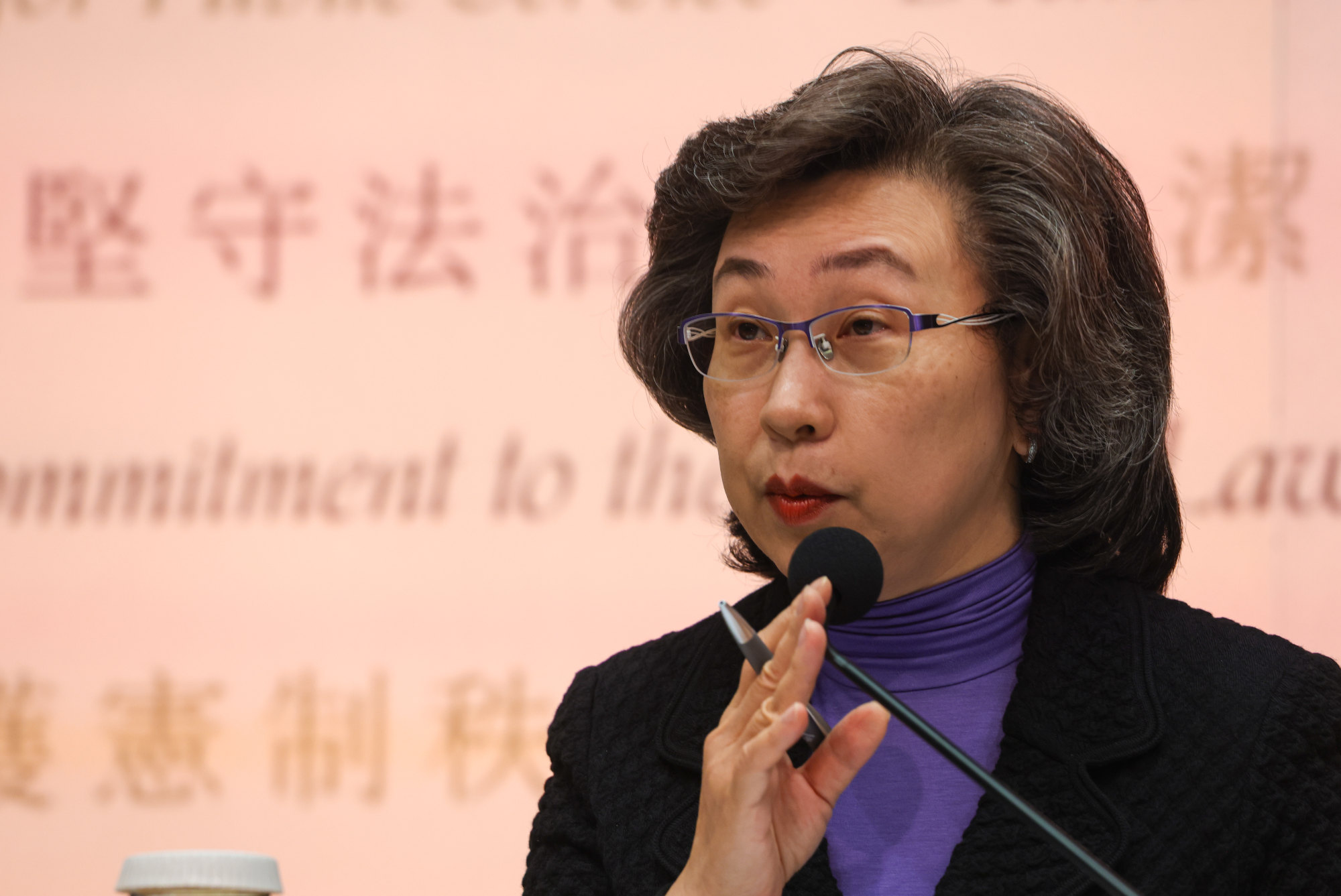
Hong Kong’s 180,000 civil servants will run afoul of proposed code if they criticise official policies – even as ordinary residents in certain situations
- Long-awaited proposed changes to code of conduct lay down 12 core values civil servants must uphold
- They can be disciplined if they criticise government policies in an official capacity or even while speaking as ordinary residents in certain situations
Hong Kong’s 180,000 civil servants will be disciplined if they openly criticise government policies in their official capacity or if they make the comments as ordinary residents in certain situations, according to proposed changes to the branch’s code of conduct.
Under the amendments unveiled by authorities on Wednesday, government workers would be required to uphold “political neutrality” as one of 12 core values and prohibited from selectively refusing to carry out policies or delaying their implementation because of their own personal views.
“Civil servants are duty-bound to safeguard national security,” Secretary for the Civil Service Ingrid Yeung Ho Poi-yan told the press against a backdrop that stated “Loyalty, dedication and integrity”.
“In their capacity as civil servants, they cannot criticise any government policies or support opposing views of other parties. In their capacity as private individuals, they have the freedom to express their views, but they should take care that their views are not mistaken as the government’s official position.”

A government source told the Post that civil servants would be deemed to have breached the revised code if they expressed anti-government views on social media or attended protests targeting authorities, even if they made a disclaimer they were acting in a personal capacity. That included publicly opposing home-grown national security legislation required under Article 23 of the Basic Law, the insider added.
“The disclaimer is not a shield,” the source said.
Government workers would also be in breach of the code if they “liked” a social media post critical of the legislation, the person added.
Senior civil servants would face greater consequences than their junior colleagues if they openly criticised the government, the source said, while stopping short of defining what ranks would be considered “high”.
“We are not requiring that government workers do not express their views,” the insider said. “What we are doing with the code is to urge civil servants to exercise discretion before taking any action.”
The proposed changes double the number of “core values” civil servants must uphold to 12, with “the constitutional order and national security” and being “outcome-focused” among the new ones.
The regulations covering public comments came under the value of “dedication to duty”, which said civil servants “must promote and implement government policies, decisions and actions”.
Yeung stressed the government was not trying to stop civil servants from expressing opposing views on policies, noting the changes stipulated the workers should put across different opinions during discussions “to make the deliberation process more comprehensive”.
Asked whether authorities would inspect government worker’s private social media, email or other accounts, Yeung said: “We will not require civil servants to submit their communications in private, whether in real life or online, for checking.
“However, if it comes to our attention that a civil servant, in expressing his or her own views in private, has not followed the principles set out in the code, we will take disciplinary action.”

The political neutrality category in the revised code stipulates that government workers should never “selectively refuse” to implement policies they might disagree with, or “delay their implementation or adopt a passive attitude” towards them because of their own political views.
Asked to define “a passive attitude” at work, Yeung said it would be “obvious” when “one’s heart is not in it”.
The minister stressed that political neutrality should be premised on supporting the chief executive. Authorities had considered removing the phrase but it was later recognised that dropping it could give rise to alternative interpretations of what was required, she said.
The revised code also stipulates that government workers should “never, directly or indirectly, organise or participate in any activity” that impedes policy implementation.
Civil servants should also take an “exemplary lead” in conscientiously discharging their duties to safeguard national security and to effectively suppress and punish acts that endangered it.
Yeung said several civil servant groups were consulted over the changes and colleagues were welcome to submit their views on them by January 19 next year.
Hong Kong Federation of Civil Service Unions CEO Leung Chau-ting said the suggested changes served as a reminder to civil servants on how they should conduct themselves, noting the code’s terms were not previously so clearly defined.
Gene Fung Chuen-chung, chairman of the Hong Kong Civil Servants General Union, welcomed the changes, saying they would help dispel the idea that government workers did not fulfil their duties or were disloyal.
Yeung last year said the administration planned to remove the “political neutrality” rule from the code to prevent government employees from using it to evade tasks.
The administration originally aimed to release an updated code in the first quarter of the year, but the plan was postponed after receiving a number of comments, according to the minister.
Earlier this year, the bureau introduced a streamlined forced retirement mechanism for workers who persistently underperformed, with the new procedure cutting the number of official review meetings to two from four and shortening the process by at least 10 months.
More than 3,000 civil servants were disciplined for misconduct over the past five years, Yeung said earlier, adding the number of government workers dismissed in 2022 was almost double the annual average.
Additional reporting by Harvey Kong


